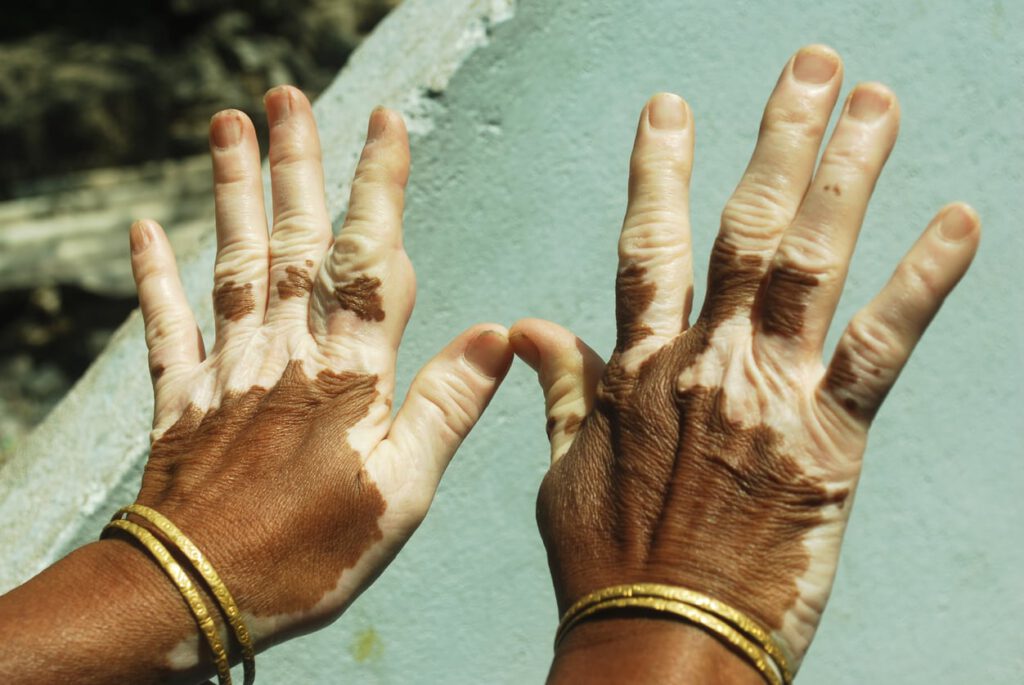For years, there was an assumption that people with the condition vitiligo had increased risk for skin cancer because this autoimmune disease resulted in the loss of melanin, which helps to filter out cancer-causing ultraviolet radiation from the sun.
But it turns out that while lighter skinned people are more prone to skin cancer, losing melanin due to vitiligo doesn’t make you more prone to skin cancers. Surprisingly, studies have shown that having vitiligo is actually associated with a reduced risk for some skin cancers.
Scientists want to know why.
A new study by researchers at Indiana University, Stanford University, Duke University and the University of Texas at Houston, offers some new insight into this perplexing puzzle. The study included data about 290,000 23andMe customers who consented to participate in research as well as data from another 2,800 individuals from the MD Anderson Cancer Center.
“It’s interesting to find genes that increase the risk of vitiligo decrease the risk for melanoma, the most deadly form of skin cancer, and vice-versa. It provides an important clue to this question.” said lead author of this paper, Wenting Wu, PhD, Assistant Research Professor of Department of Medical and Molecular Genetics at Indiana University School of Medicine.

Vitiligo causes the loss of pigmentation-producing cells called melanocytes, and that in turn leads to the development of patches of milky white areas on the skin. It can sometimes appear only on isolated areas of the body, one side of the body, or the entire body. The late pop star Michael Jackson is probably one of the most famous persons to have the condition, which usually starts on sun-exposed areas first like the hands, arms, and face. Typically it emerges between the ages of 10 and 30, and the condition is sometimes associated with other autoimmune conditions such as psoriasis, rheumatoid arthritis, and thyroid disease.
For this study, researchers compared known genetic associations for vitiligo to genetic associations with a risk for melanoma. The researchers were able to first confirm an inverse relationship between the risks for vitiligo and skin cancer, and then they identified genetic variants in four genes that play a role in pigmentation or immune response. It is interesting to find that immune-related SNPs, which encode important immunoregulative proteins, showed consistent inverse relationships between vitiligo and skin cancers.
“Overall, the inverse relationship might indicate that different or opposed biological pathways mediate vitiligo and skin cancer, or vitiligo might lead to enhanced immune activity against both melanoma and non-melanoma skin cancer,” said corresponding author of this paper, Jiali Han, PhD, a professor and chair of Department of Epidemiology at Richard M. Fairbanks School of Public Health at IUPUI, and Rachel Cecile Efroymson Professor of Cancer Research at Indiana University Melvin and Bren Simon Cancer Center.
The full study can be found in The Journal of Investigative Dermatology.